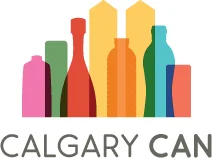Binners lining up to exchange coffee cups for refund at the Coffee Cup Revolution in Vancouver last October.
The Binners’ Project is a non-profit organization in Vancouver that has been active since 2014 which aims to work with the bottle picking community through a number of programs such as community building, public awareness, and several pilot projects, such as the Binners’ Hook.
Yearly, the Binners’ Project holds a coffee cup revolution event to raise awareness on waste reduction. The last event, held on October 24, 2016, invited ‘binners’ (i.e. informal recyclers/bottle pickers) to collect and redeem paper coffee cups for 5-cents. The result was pretty astounding, word had been spread about this event and 49,000 cups were collected in as little as 4 hours! According to the Binners’ Project, holding this yearly event helps put a spotlight on waste management and recycling as half a million trees each year are used to create paper cups in Canada.
Simon Fraser University estimated that 1.6 Billion single use coffee cups, equating to 350,000 trees and 400 million gallons of water end up in Canadian landfills each year. The Binners’ Project believes that IF coffee cups were refundable the streets would be cleaner, less waste would end up in our landfills, and this would further economic opportunities available in the community.
Kate (pictured here) and Jessi attended the Coffee Cup Revolution in Vancouver last October and participated in the world cafe.
CALGARY PAPER CUP FACTS
- According to Green Calgary, Calgarians use an estimated 62 million single use paper cups each year!
- In 2014, Alberta generated almost double the amount of waste of British Colombia.
- As of 2016, the City of Calgary recycles paper coffee cups and paper sleeves.
- In Calgary, plastic drink lids must be thrown into the garbage as they are too small to be captured by the city’s recycling process system. Plastic takes on average 450 years to degrade (get smaller and smaller over time), some types as long as 1000 years; plastic is not biodegradable.
- What happens to the coffee cups in Calgary after they are recycled? New technologies have allowed paper pulp processors to be able to separate the polycoat lining from the paper fibres within coffee cups. The cups and other polycoated papers are first shredded and enter a 'hydropulper', which agitates the material in a water bath to separate and then filter the layers. This allows the paper fibres to be used to make new paper products such as cereal boxes, egg cartons and more.
Wouldn't it be nice if we could avoid this?



